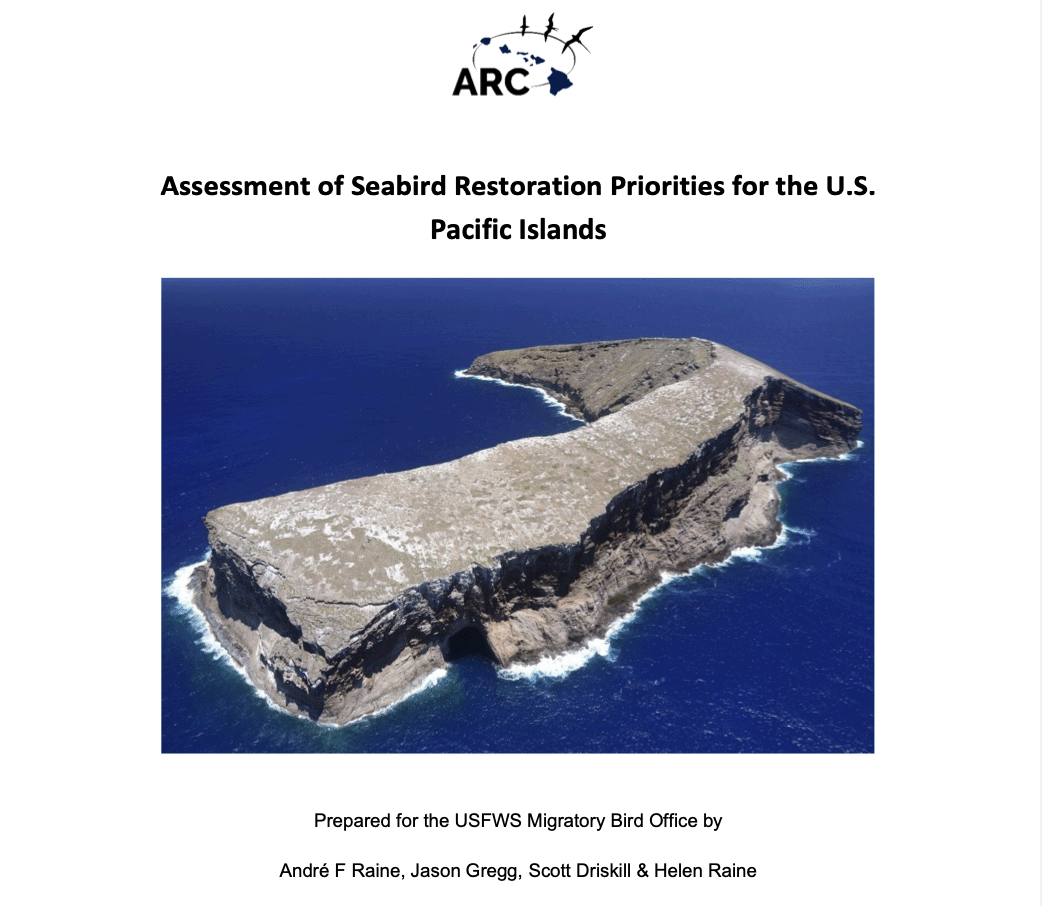
André F Raine, Jason Gregg, Scott Driskill & Helen Raine of Archipelago Research and Conservation, have released a report on selecting the most appropriate sites for seabird colony restoration projects in the U.S. Pacific Islands. The report, “Assessment of Seabird Restoration Priorities for the U.S. Pacific Islands” was prepared for the USFWS Migratory Bird Office and drew on data collected from interviews with 74 seabird experts and land managers.
The Executive Summary as follows,
“This report presents an assessment of conservation priorities for non-federally listed seabirds breeding within the U.S. Pacific Islands (USPI), with a focus on seabird colony restoration using social attraction and translocation. It covers five distinct geographic regions: the Main Hawaiian Islands (MHI), the Northwestern Hawaiian Islands (NWHI) including Papahānaumokuākea Marine National Monument, the Commonwealth of the Northern Mariana Islands (CNMI), Guam, American Samoa, and the Pacific Remote Islands Marine National Monument (PRI). The document consists of two main sections. The first identifies which non-federally listed species are the most imperiled within the USPI through an independent species risk assessment process, including a component on climate change impacts. The second section utilizes data collected on potential colony restoration sites identified during interviews with 74 seabird experts undertaking seabird conservation work throughout the region. This wide-ranging collaborative approach presents a unique opportunity to gain a collective insight into the most appropriate sites for colony restoration projects in the USPI. “
Reference:
Raine, A.F., Gregg, J., Driskill, S. and Raine, H. (2022). Assessment of Seabird Restoration Priorities for the U.S. Pacific Islands. Archipelago Research and Conservation, Hawaiʻi, USA.
10 April 2023

 English
English  Français
Français  Español
Español